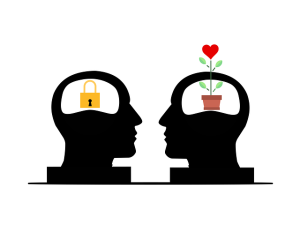Student stress arises from overwhelming workloads, academic pressure, social demands, and time management challenges, exacerbated by high-stakes exams and competition. Effective stress relief therapy combines lifestyle changes like regular exercise, sleep, nutrition, mindfulness (meditation, breathing exercises), CBT for negative thought patterns, relaxation techniques, physical activity, and a strong support network. These holistic approaches combat stress symptoms, promote well-being, enhance academic performance, and foster long-term mental health resilience in students.
“Student life is often filled with challenges, leading to significant stress that can impact academic performance and overall well-being. This article explores comprehensive strategies for managing student stress, offering a multi-faceted approach to wellness. We delve into the primary causes and effects, highlighting the importance of early intervention. From lifestyle adjustments to evidence-based therapies like CBT and mindfulness practices, we provide effective tools for finding calm amidst the chaos. Discover how incorporating physical activity, building support networks, and seeking professional help can revolutionize stress relief for students.”
Understanding Student Stress: Causes and Impact

Student stress is a prevalent issue that can stem from various factors, each with its unique impact on academic performance and overall well-being. Understanding these causes is crucial in developing effective strategies for stress management. Students often face overwhelming workloads, leaving them with little time for relaxation or extracurricular activities. The pressure to excel academically, coupled with social and personal responsibilities, can create a sense of constant urgency and anxiety.
Moreover, the modern educational landscape, characterized by high-stakes exams and competitive environments, adds to this stressor mix. Students may also struggle with time management, leading to last-minute cramming sessions and increased tension. Unaddressed stress can result in physical symptoms like headaches and insomnia, as well as emotional issues such as irritability and difficulty concentrating. Implementing stress relief therapy techniques becomes essential in mitigating these impacts and fostering a healthier student experience.
Lifestyle Changes for Better Mental Health

Many students turn to stress relief therapy as a way to cope with academic pressures and demanding schedules. While professional therapy is an effective tool, incorporating lifestyle changes can also significantly enhance mental well-being. Regular exercise, for instance, releases endorphins that combat stress hormones, improving mood and energy levels. Adequate sleep is another cornerstone; setting a consistent sleep schedule allows the mind and body to rest and recharge, boosting focus and resilience against stress.
Nutrition plays a vital role too. Eating balanced meals with whole foods provides essential nutrients for brain health. Staying hydrated and limiting caffeine intake can also stabilize mood swings and reduce anxiety. Additionally, practicing mindfulness through meditation or deep breathing exercises helps students stay grounded in the present moment, reducing worries about future tasks or regrets about past choices.
The Power of Mindfulness and Meditation Techniques

Mindfulness and meditation are powerful tools for students looking to manage their stress levels effectively. These techniques encourage individuals to focus on the present moment, cultivating a sense of calm and clarity. By training their minds to observe thoughts and emotions without judgment, students can develop resilience against stressful situations.
Regular mindfulness practices have been shown to reduce anxiety, improve concentration, and enhance overall well-being. Simple meditation exercises, such as deep breathing or guided visualizations, can be easily incorporated into daily routines. These practices not only provide immediate stress relief but also foster long-term mental health by promoting self-awareness and emotional regulation.
Cognitive Behavioral Therapy (CBT): A Structured Approach

Cognitive Behavioral Therapy (CBT) is a structured approach to stress relief therapy that focuses on identifying and changing negative thought patterns and behaviors. By challenging unhelpful thoughts and replacing them with more realistic, positive ones, CBT helps individuals manage their stress more effectively. This therapy teaches students practical coping strategies they can use in their daily lives, such as problem-solving skills, relaxation techniques, and improved time management.
Through CBT, students learn to navigate stressful situations by understanding the connection between thoughts, feelings, and behaviors. This structured framework provides a clear path for managing stress, offering tangible tools to reframe negative perspectives and foster resilience. As a result, CBT equips students with the means to take control of their mental well-being, fostering better academic performance and overall life balance.
Incorporating Physical Activity and Relaxation Exercises

Incorporating physical activity and relaxation exercises is a powerful strategy for students seeking effective stress management. Regular exercise acts as a natural stress reliever, releasing endorphins that boost mood and reduce tension. Whether it’s joining a sports team, going for runs, or even practicing yoga, engaging in physical activities helps clear the mind and promotes better sleep patterns, which are essential for academic performance. Moreover, dedicated relaxation exercises like deep breathing, meditation, or progressive muscle relaxation can significantly lower stress levels and enhance overall well-being. These practices allow students to develop mental resilience, enabling them to navigate challenging situations with a calmer mindset.
Combining physical activity and relaxation techniques offers a holistic approach to stress relief therapy. By incorporating these activities into their daily routines, students can gain better control over their stress responses. This not only improves their ability to handle academic pressures but also fosters a healthier lifestyle that benefits both mental and physical health in the long term.
Building a Support Network: Friends, Family, and Professionals

Building a strong support network is a vital aspect of stress management for students. Friends and family can play a crucial role in providing emotional support, understanding academic pressures, and offering practical help. These relationships can act as a safety net during stressful times, offering listening ears, sharing coping strategies, and providing motivation. Moreover, professionals like therapists or counselors can be valuable assets for stress relief therapy. They offer specialized guidance tailored to managing academic workloads, exam anxiety, and the unique challenges students face.
Integrating these support systems into daily life fosters a sense of belonging and well-being. Regular interactions with friends and family help alleviate stress by offering different perspectives and emotional validation. Similarly, seeking professional help through stress relief therapy provides students with valuable tools to cope with academic demands effectively and maintain mental health.
